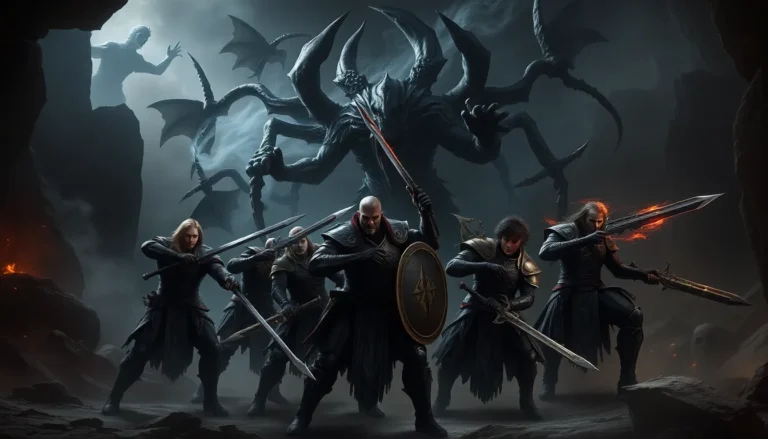When it comes to the gaming world, China is like the grand chess master, smartly moving pieces that can shake the whole board. Recent shifts in the industry have caught everyone’s attention and developed a narrative that’s both fascinating and evolving. From regulatory changes to the rise of mobile gaming, this article delves into the latest buzz. So, grab your snacks because we’re diving deep into the exciting world of Chinese gaming news.
Table of Contents
ToggleRecent Developments in China’s Gaming Industry

Regulatory Changes Impacting Game Releases
The gaming landscape in China is not just growing: it’s undergoing seismic shifts. Recently, the government has introduced regulatory changes that significantly affect game releases. These changes often ripple through the industry, ushering in a more structured release mechanism. Developers find themselves jumping through hoops to get approval, but these hurdles eventually aim to maintain quality and safety in gaming content. Stricter regulations mean that while some titles are facing delays, others are benefiting from a newfound focus on innovation and cultural relevance.
Trends in Mobile Gaming
Mobile gaming continues to dominate the market in China, capturing attention like a cat with a laser pointer. As more players opt for gaming on-the-go, developers rush to optimize experiences for mobile platforms. Recent statistics reveal that mobile gaming revenues have skyrocketed, driving the industry’s overall growth. Casual games, in particular, have surged in popularity, reflecting the shifting lifestyles of the Chinese population. Gamers are increasingly looking for quick, engaging gameplay experiences that they can enjoy during commutes or while waiting in line.
Key Game Releases and Partnerships
Upcoming Titles to Watch
With much anticipation, the gaming calendar is packed with upcoming releases that have gamers on the edge of their seats. Titles like “Genshin Impact 2.0” have captured the hearts of players, and its sequel promises to bring even more excitement. Other anticipated games, like battle royales and strategy titles, are making waves in pre-launch discussions. The buzz surrounding these releases reflects a blend of high expectations and a deep hunger for immersive experiences, showcasing the dynamic creativity flourishing within the industry.
Collaboration Between Chinese and International Developers
Besides, collaborations between Chinese and international developers have gained prominence. Partnerships aimed at bringing diverse content to the forefront showcase a willingness to blend ideas and approaches. These collaborations not only enrich the gaming catalog but also reflect a growing recognition of gaming as a universal language. This blend offers players access to a kaleidoscope of gaming experiences, fostering cross-cultural exchanges in storytelling and gameplay.
eSports Growth in China
Major Tournaments and Events
As the dust settles from previous tournaments, the competitive spirit in China’s eSports scene has reached an all-time high. Major tournaments spotlight top-tier players and teams, captivating millions. Events like the ‘League of Legends Pro League’ (LPL) have become spectacles, drawing spectators both online and in person. These tournaments aren’t just for glory: they provide lucrative prize pools that entice players to showcase their skills on a grand stage. The energy is electric, with fans rallying behind their favorite teams, creating a fervor that transcends the virtual arenas.
Notable Teams and Players
The players and teams carving their names into the annals of Chinese eSports history are an integral part of this growth. Noteworthy teams, such as Invictus Gaming and EDward Gaming, have gained substantial followings. Bright stars, like ‘Jiejie’ and ‘Doinb’, have established themselves as household names among gamers. Their impressive skills and charming personalities elevate the scene, drawing more viewers and sparking inspiration in aspiring competitors.
Impact of Government Policies on eSports
Future Outlook for the Gaming Sector
Government policies continue to shape the competitive gaming landscape, balancing concerns about youth gaming habits with the need for industry growth. These regulations aim to ensure a sustainable ecosystem for eSports, but their implications are multifaceted. On one hand, stricter regulations might challenge growth: on the other hand, they could foster a more professional environment, attracting further investments in the long run. The future of the gaming sector hinges on this careful juggle, where innovation meets regulation.
Consumer Trends and Changing Preferences
As consumer trends evolve, so do the preferences of gamers. The shift towards social and cooperative gameplay experiences has reshaped how games are developed and marketed. Gamers are not just looking for solitary experiences anymore: they yearn for interaction, community, and engagement. This shift influences everything from game design to marketing strategies, as companies aim to create games that resonate with a new generation of players.





